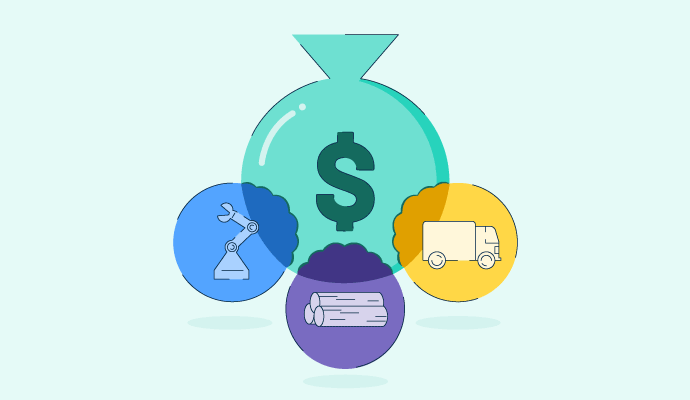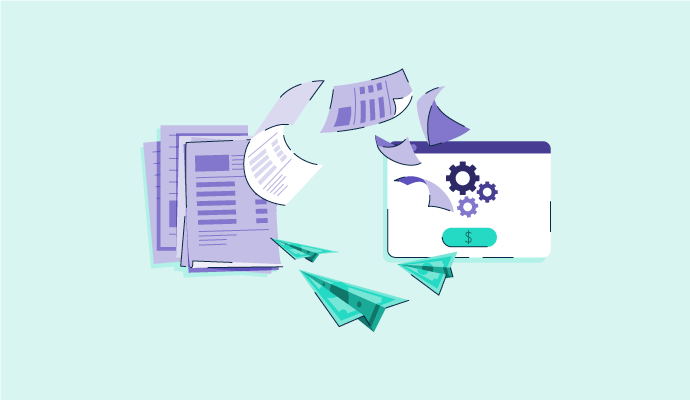Accounts Payable Automation Software Resources
Articles, Discussions, Topics, and Reports to expand your knowledge on Accounts Payable Automation Software
Resource pages are designed to give you a cross-section of information we have on specific categories. You'll find articles from our experts, discussions from users like you, topics to contrast viewpoints, and reports from industry data.
Accounts Payable Automation Software Articles
How to Calculate Cost of Goods Sold (COGS): A Complete Guide
Understanding your costs is essential for sustaining profitability in manufacturing.
by Devin Pickell
History of Accounting: How It's Evolved Over the Years
There’s a good chance you’ve never covered this in your accounting classes.
by Rob Browne
Accounts Payable Specialist Certification: Helping Enrich G2's Accounting Categories
I recently completed an accounts payable (AP) specialist certification course offered by the Institute of Finance & Management (IOFM). I'm sharing why I chose this certification, what the course entailed, and how I can better serve G2 buyers and vendors with it.
by Nathan Calabrese
What Is a General Ledger (GL) and Why Does Every Company Need One?
Any organization with an inflow and outflow of funds (debits and credits)—income, donations, depreciation, or expenses—needs to record and track these transactions. The goal is to prepare the company’s financial statements and hence, gain insight into the financial status.
by Nathan Calabrese
Some Well Known (and Lesser Known) Facts About GAAP
I’m sure many people have heard the term GAAP used in one conversation or another, but unless you are a seasoned accounting or finance professional, you might know little about these important regulations, besides what the acronym stands for.
by Nathan Calabrese
2021 Trends in Accounting and Finance
This post is part of G2's 2021 digital trends series. Read more about G2’s perspective on digital transformation trends in an introduction from Michael Fauscette, G2's chief research officer and Tom Pringle, VP, market research, and additional coverage on trends identified by G2’s analysts.
by Nathan Calabrese
The Role of Artificial Intelligence in Accounting
Accounting is one of the most important, yet daunting and expensive departments in almost all companies.
Accountants oversee all financial operations of a business to help it run smoothly and efficiently. These include preparing and analyzing financial statements (e.g., cash flow, income statement, balance sheet), paying taxes on time, and maintaining the companies’ general ledger (GL). All these tasks require a great deal of human interaction that takes time and money; no matter how careful an employee may be, there is always the chance for human error, which could snowball and lead to devastating financial results in the future.
by Nathan Calabrese
How to Stay Organized When Closing Books Remotely
Almost any public or private business with an accounting and finance department performs a month, quarter, and year-end close, which is a series of steps to review, record, and reconcile accounting information.
For this blog, I’m going to refer to only month-end close for consistency and simplicity.
by Nathan Calabrese
The Importance of Accounts Payable (AP) Automation
The phrase “time is money” has never been more true than it is now.
by Nathan Calabrese
Free Accounting and Tax Services Being Offered Due to COVID-19
During this worldwide crisis, no industry seems to be immune to the drastic economic downturn caused by COVID-19. Many companies are stepping up to assist their struggling customers, even if it means reconsidering their bottom line.
by Nathan Calabrese
What Is Cash Basis Accounting? (+When You Should Use It)
The products and services your company provides are your lifeblood.
by Rob Browne
Accounting Software Basics (+ Some Key Features to Look For)
Most business owners know that accounting is one of the most important aspects of running a company.
by Devin Pickell
Accounts Payable Automation Software Discussions
0
Question on: OpenEnvoy
What is OpenEnvoy used for?What is OpenEnvoy used for?
OpenEnvoy primarily functions as a technology for automating the Accounts Payables process, and in some specific cases, Accounts Receivable. It intercepts invoices and their corresponding supporting evidence from various sources such as email, shared drives, databases, and EDI. The data is then digitized, structured, and deduplicated. Several checks are performed during this process, including deduplication at the line item level, fraud detection, and classification of every field. A natural language processing step is also included to translate and structure complex descriptive text.
Once the data processing step, known as "Extraction," is complete (usually within 1 second), the system conducts a full financial audit, also referred to as reconciliation or n-way match. This involves comparing every element of the invoice with downstream delivery information (such as warehouse receipts, bill of lading, and customs information) and upstream contractual documentation (such as contracts, quotes, and purchase orders). The purpose is to ensure that, in the case of a manufacturer, the customer received the exact product, quantity, and agreed-upon price in real-time. This comprehensive audit of the spend typically takes around 3 seconds, which is significantly faster and cheaper than traditional methods used by major auditing firms.
Once the matching process is complete, various actions such as accruals, "OK to Pay" approvals, and credit memos are synchronized with the ERP/payment platform. The entire process is designed to be 100% touchless, except in cases where an approval is required for compliance purposes or when fraud/over-billing is detected during the matching process. Unlike other solutions on the market, there are no manual correction interfaces, templates, or vendor onboarding as it’s 100% accurate (SLA'd) without any upfront training. On average, OpenEnvoy pays for itself within a couple of months. Also, it used to be quite difficult to implement, but that’s no longer the case as the time to initial value is one week.
0
Question on: Payoneer
What is Payoneer and how it works?What is Payoneer and how it works?
Payoneer is an E-banking application that lets you open multiple "receiving accounts" corresponding to different worldwide currencies, under one Payoneer account. Whether you're a business and you're looking to pay your customers by answering their invoices, or you're a freelancer looking to be paid through invoice, you have the ability to receive and send money from and to -theoretically- everyone in the world using a local bank or a Payoneer account, as long as the "receiving accounts" match.
It also gives you the ability to withdraw your funds directly to your local bank connected to your Payoneer account.
It gives you a total of 6 free receiving accounts or the most used worldwide currencies (USD/GBP/JPY)upon registration, an account of your local currency included.
Conversion fees (if applicable) and "transfer to local bank" fees are totally inexpensive.
After receiving a total of 100 of any currency, it gives you the ability to open more receiving accounts, which translates to more opportunities!
Accounts Payable Automation Software Reports
Mid-Market Grid® Report for AP Automation
Summer 2025
G2 Report: Grid® Report
Grid® Report for AP Automation
Summer 2025
G2 Report: Grid® Report
Enterprise Grid® Report for AP Automation
Summer 2025
G2 Report: Grid® Report
Momentum Grid® Report for AP Automation
Summer 2025
G2 Report: Momentum Grid® Report
Small-Business Grid® Report for AP Automation
Summer 2025
G2 Report: Grid® Report
Enterprise Grid® Report for AP Automation
Spring 2025
G2 Report: Grid® Report
Small-Business Grid® Report for AP Automation
Spring 2025
G2 Report: Grid® Report
Mid-Market Grid® Report for AP Automation
Spring 2025
G2 Report: Grid® Report
Grid® Report for AP Automation
Spring 2025
G2 Report: Grid® Report
Momentum Grid® Report for AP Automation
Spring 2025
G2 Report: Momentum Grid® Report












